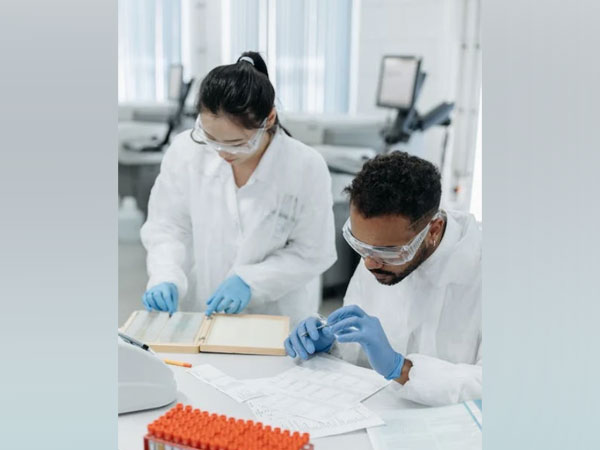
New Delhi: India has marked a significant milestone in the field of genomics with the launch of the India Genomic Data Set and the India Bioinformatics and Data Centre (IBDC) portals.
The announcement was made on January 9, 2025, by Jitendra Singh, Union Minister of State (Independent Charge) for Science and Technology, at the Genome India Data Conclave held at Vigyan Bhavan, New Delhi.
This ground-breaking initiative underscores India’s commitment to achieving self-reliance in genomics while empowering global research efforts.
The India Genomic Data Set is a comprehensive repository of genomic information representing the country’s diverse population.
It serves as a critical resource for researchers, enabling advancements in precision medicine, biotechnology, and public health.
Complementing this, the IBDC portals aim to provide secure and efficient access to this genomic data, ensuring ethical usage and compliance with international standards.
For decades, India’s scientific community faced challenges due to limited access to indigenous genomic data.
Researchers had to rely heavily on foreign genomic datasets, which often lacked representation of India’s diverse genetic makeup.
This dependency not only hindered scientific progress but also limited the scope of research tailored to the unique health challenges of the Indian population.
The launch of these portals addresses this gap, placing India on the global genomic map and offering a platform for collaborative research.
“India is no longer dependent on foreign genomic data,” stated Minister Jitendra Singh during the conclave. “This initiative is a vital step towards Atmanirbhar Bharat (self-reliant India) in the field of genomics.”
The minister said India, which now ranks 12th globally in biotech and third in the Asia-Pacific region, is the largest vaccine producer in the world and the third-largest startup ecosystem.
"The rapid rise of biotech start-ups—from just 50 in 2014 to over 8,500 in 2023—demonstrates India’s growing leadership in biotechnology and its potential to revolutionise the global bio-economy," he said.
However, the Indian Biological Data Centre (IBDC) will provide researchers with easy access to vital genetic data, helping them study genetic variations and create more precise genomic tools.
The 10,000 whole genome sequencing (WGS) samples, sourced from diverse Indian populations, offer a comprehensive catalogue of genetic variations.
This initiative aims to establish India as a leader in genomics, supporting the development of genomic chips tailored to the Indian population and improving the accuracy of genetic research.
The launch of the 'Framework for Exchange of Data (FeED)' Protocols, under the Biotech-PRIDE Guidelines, guarantees the responsible, transparent, and equitable sharing of high-quality, nation-specific data.
The Biotech-PRIDE Guidelines, introduced in 2021, underscore India's commitment to ethical and secure data-sharing practices.
Some key features of the initiatives:
Diverse and representative data: The India Genomic Data Set encompasses genetic information from various regions, ethnicities, and communities across the country. This inclusivity ensures that the database reflects the rich genetic diversity of India, enabling studies that are globally relevant and locally impactful.
Advanced data security and privacy: The IBDC portals prioritise data security and ethical considerations. Stringent measures have been implemented to protect personal genomic information, ensuring compliance with national and international regulations, including the General Data Protection Regulation (GDPR).
Research facilitation: These platforms provide researchers with tools and resources for analysing genomic data. Integrated bioinformatics capabilities allow for sophisticated analyses, from identifying disease-causing mutations to exploring population genetics.
Global collaboration: By making genomic data accessible to researchers worldwide, India invites collaboration on pressing global health challenges such as cancer, rare genetic disorders, and infectious diseases. This open-access model fosters innovation and accelerates the development of novel therapies.
The establishment of the India Genomic Data Set and IBDC portals is poised to revolutionise healthcare and biotechnology in multiple ways:
Precision medicine: Genomic data is the cornerstone of precision medicine, enabling tailored treatments based on an individual’s genetic profile. With access to a diverse genomic dataset, Indian researchers can develop therapies that are more effective for the local population.
Drug discovery and development: The availability of comprehensive genomic data expedites the drug discovery process. Pharmaceutical companies can identify genetic targets more efficiently, reducing the time and cost of bringing new drugs to market.
Improved public health policies: Genomic insights can inform public health strategies, from understanding the genetic basis of diseases prevalent in India to designing preventive measures.
India's road to self-reliance
India’s journey towards self-reliance in genomics has been shaped by several pivotal initiatives.
The Genome India Project, launched in 2020, laid the groundwork by mapping the genetic diversity of the Indian population.
Over the years, collaborative efforts between government agencies, research institutions, and industry stakeholders have built the infrastructure necessary for the current advancements.
“This achievement is not just about technology; it is about sovereignty over our genetic identity,” Minister Jitendra Singh emphasised. “By harnessing our own data, we can address health challenges unique to our nation and contribute to global solutions.”
The India Genomic Data Set and IBDC portals represent a bold vision for the future of genomics in India.
By leveraging its vast genetic diversity, India is not only addressing its own healthcare needs but also contributing to the global scientific community.
The initiative embodies the spirit of “Vasudhaiva Kutumbakam”—the world is one family—by promoting collaboration and shared progress.
As genomic research continues to evolve, the impact of these initiatives will extend beyond healthcare to fields such as agriculture, environmental science, and forensic investigations.
With the foundation laid at the Genome India Data Conclave, India is set to emerge as a global leader in genomics, shaping the future of science and technology.
The launch of the India Genomic Data Set and IBDC portals is a testament to India’s resolve to harness the power of genomics for societal benefit.
It is a leap forward not just in science but in the broader journey towards a healthier, more equitable, and self-reliant future.